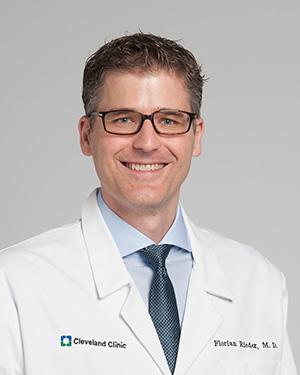Research News
04/13/2022
The STAR Consortium Awarded $5.3 Million from the Helmsley Charitable Trust to Develop Next Generation Biomarker Tools for Crohn’s Disease Patients
The STAR consortium, led by coordinating PI Dr. Rieder, seeks to identify and develop novel biomarkers to help establish effective therapeutics for Crohn’s disease patients with fibrosis.

The Stenosis Therapy and Anti-Fibrotic Research (STAR) consortium has received a 3-year, $5.3 million award from the Leona M. and Harry B. Helmsley Charitable Trust to expand its support for the development of a next generation biomarker tool for Crohn’s disease patients with intestinal fibrosis. The award will be split among Cleveland Clinic, Mayo Clinic and Alimentiv, Inc.
Patients with Crohn’s disease, a chronic inflammatory bowel disease, frequently develop stricturing, or narrowing of the gut due to excessive scar tissue formation. This painful condition, known as intestinal fibrosis, can significantly impair the quality of life in affected patients, often leading to repeated endoscopies, surgeries and hospitalizations. While advances have been made in fibrotic (scarring) disease of the liver, heart and skin, there are no current anti-fibrotic therapies available for use in Crohn’s disease.
The STAR consortium, for which Cleveland Clinic is the coordinating center, aims to develop and validate molecular and imaging biomarkers that would enable clinical testing of anti-fibrotic drugs in patients with Crohn’s disease stricturing. The consortium is co-led by Florian Rieder, MD, clinical staff in Department of Gastroenterology, Hepatology and Nutrition, and research staff in the Department of Inflammation & Immunity at Cleveland Clinic; Joel Fletcher, MD, professor of radiology and medical director of Mayo Clinic’s Clinical Innovation Center; and Brian Feagan MD, senior scientific director of Alimentiv, Inc.
The research data and tools developed under the initiative will be disseminated to the greater Crohn’s disease clinical and research communities for the benefit of all patients.
“About half of all people with Crohn’s disease develop strictures and obstruction due to intestinal fibrosis,” said Dr. Rieder. “If we can accelerate the development of much needed anti-fibrotic therapies, we can successfully treat patients with Crohn’s disease strictures and significantly impact their lives, helping patients go back to work, have a family and lead a normal life.”
Featured Experts
News Category
Related News
Research areas
Want To Support Ground-Breaking Research at Cleveland Clinic?
Discover how you can help Cleveland Clinic save lives and continue to lead the transformation of healthcare.
Give to Cleveland Clinic